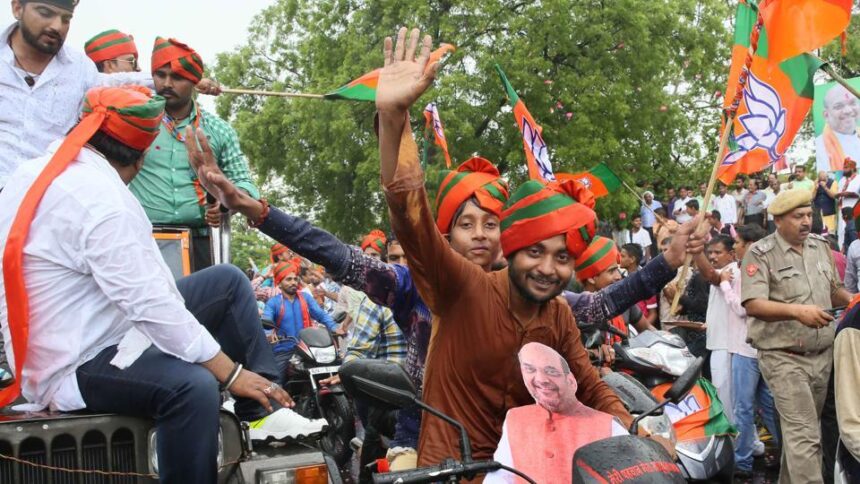In India, a burgeoning young population is not just a demographic feature but a powerful force capable of shaping the nation’s political future. As the world’s largest democracy boasts the highest number of young people globally, the evolving political ideologies of these young citizens are poised to significantly influence India’s governance and policy direction.
The Youth’s Rising Influence in Politics
The young demographic in India is increasingly active, informed, and passionate about national and global issues, thanks to widespread access to digital information and social media platforms. This connectivity has not only broadened their perspectives but has also empowered them to voice their opinions more loudly and clearly than ever before.
Transitioning from Traditional to Contemporary Ideologies
The political leanings of India’s youth are markedly shifting from traditional party loyalties to a more issue-based alignment. Modern concerns such as climate action, privacy in the digital age, social justice, and economic reform are at the forefront of this shift. This evolution is challenging older political paradigms and compelling traditional parties to revisit their platforms to attract and retain the allegiance of young voters.
Policies Shaped by Young Voices
The influence of young Indians is increasingly evident in new government policies addressing key youth concerns. For instance, the significant push towards new IT regulations and startup incentives reflects the young electorate’s deep interest in entrepreneurship and technology. Additionally, India’s commitments under international climate accords mirror the environmental advocacy that resonates strongly with the youth.
Barriers to Political Engagement
Despite their potential, young Indians face obstacles in their path to political efficacy. A pervasive sense of disenchantment with traditional politics, marked by bureaucracy and corruption, often dampens their enthusiasm. Moreover, there is a notable disparity in political engagement between urban and rural youth, exacerbated by uneven access to education and digital resources.
Enhancing Youth Political Participation
Addressing these challenges requires a concerted effort to improve civic education and encourage broader political participation. Integrating comprehensive civic education into the curriculum from an early age could significantly empower young people with the knowledge and skills necessary to engage constructively in the political process.
Conclusion
The ideologies and engagement of young Indians are crucial in shaping the future political landscape of India. As they increasingly assert their presence in the political arena, their influence on policy-making and governance is set to expand. For India to thrive democratically and developmentally, it must harness this youthful energy, integrating their diverse views and aspirations into the nation’s political fabric. Engaging this dynamic segment of the population effectively will ensure a governance structure that is robust, responsive, and reflective of contemporary values and priorities.


Leave a Reply